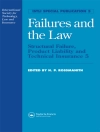Rich, personal stories shed light on midwives at the frontier of women’s reproductive rights.
Midwives in the United States live and work in a complex regulatory environment that is a direct result of state and medical intervention into women’s reproductive capacity. In Birthing a Movement, Renée Ann Cramer draws on over a decade of ethnographic and archival research to examine the interactions of law, politics, and activism surrounding midwifery care.
Framed by gripping narratives from midwives across the country, she parses out the often-paradoxical priorities with which they must engage—seeking formal professionalization, advocating for reproductive justice, and resisting state-centered approaches. Currently, professional midwives are legal and regulated in their practice in 32 states and illegal in eight, where their practice could bring felony convictions and penalties that include imprisonment. In the remaining ten states, Certified Professional Midwives (CPMs) are unregulated, but nominally legal. By studying states where CPMs have differing legal statuses, Cramer makes the case that midwives and their clients engage in various forms of mobilization—at times simultaneous, and at times inconsistent—to facilitate access to care, autonomy in childbirth, and the articulation of women’s authority in reproduction. This book brings together literatures not frequently in conversation with one another, on regulation, mobilization, health policy, and gender, offering a multifaceted view of the experiences and politics of American midwifery, and promising rich insights to a wide array of scholars, activists, healthcare professionals alike.
Cuprins
Introduction: Knowing About Legality and Illegality in Midwifery Care in the United States
1. History and Status of Midwives in the United States
2. Modern and Professional: Legitimating, Marketing, and Reimagining Midwives
3. Mostly Happy Accidents: Successfully Mobilizing for Legal Status
4. Rights, Rules, and Regulation
5. Catching Babies and Catching Hell: Constitutive Interactions in the Limits and Shadow of the Law
6. Deep Transformations, Deep Contradictions: Changing Birth Culture One Movie, One Picnic, One<3.>Tiny Little Epistemological Shift at a Time
Conclusion: Attending to Birth in Sociolegal Scholarship: Embodied, Interdisciplinary, and Authoritative Knowledge
Despre autor
Renée Ann Cramer is Chair and Professor of Law, Politics, and Society, and the Herb and Karen Baum Chair of Ethics in the Professions at Drake University. She is the author of
Cash, Color, and Colonialism (2005) and
Pregnant with the Stars (Stanford, 2015).












